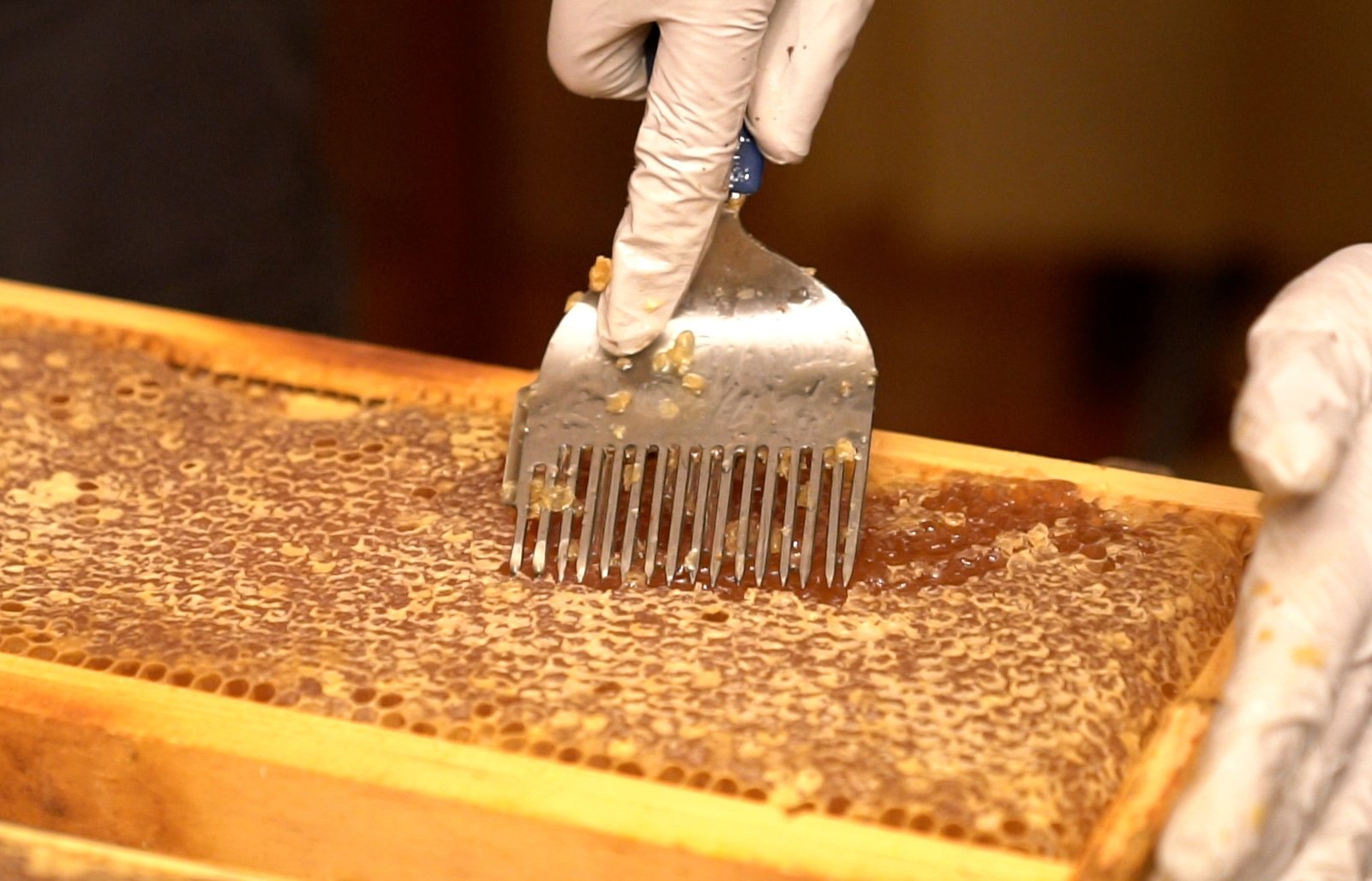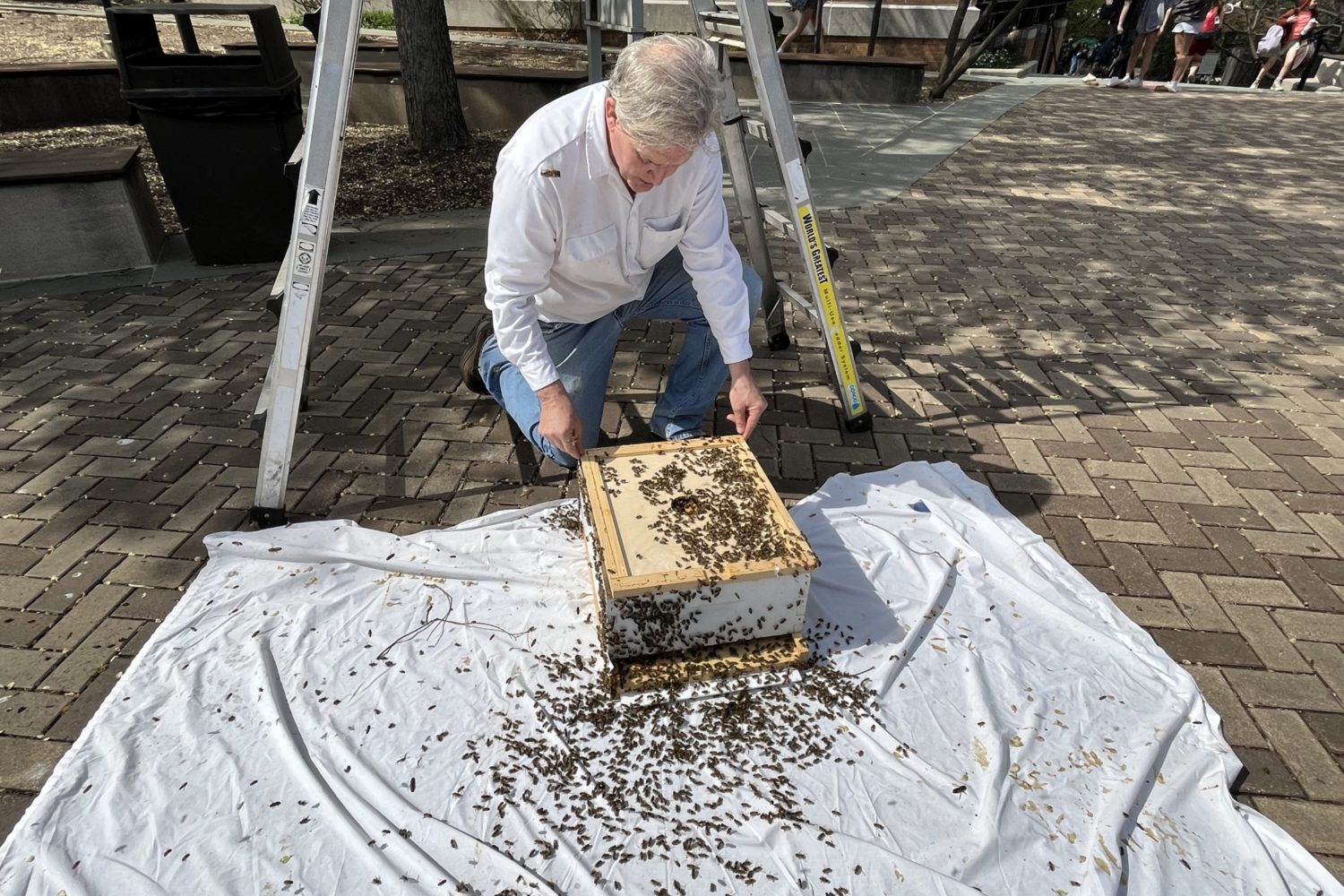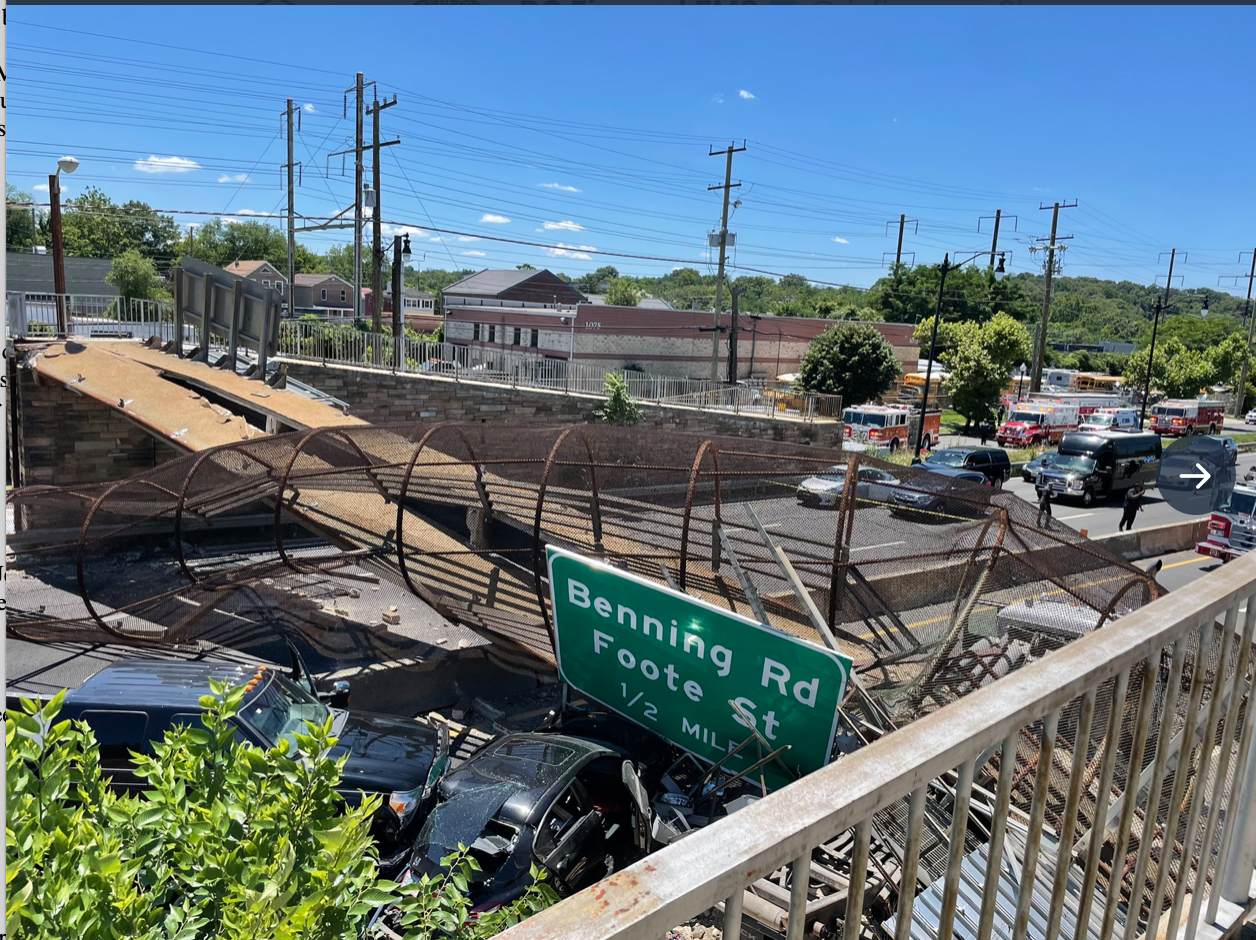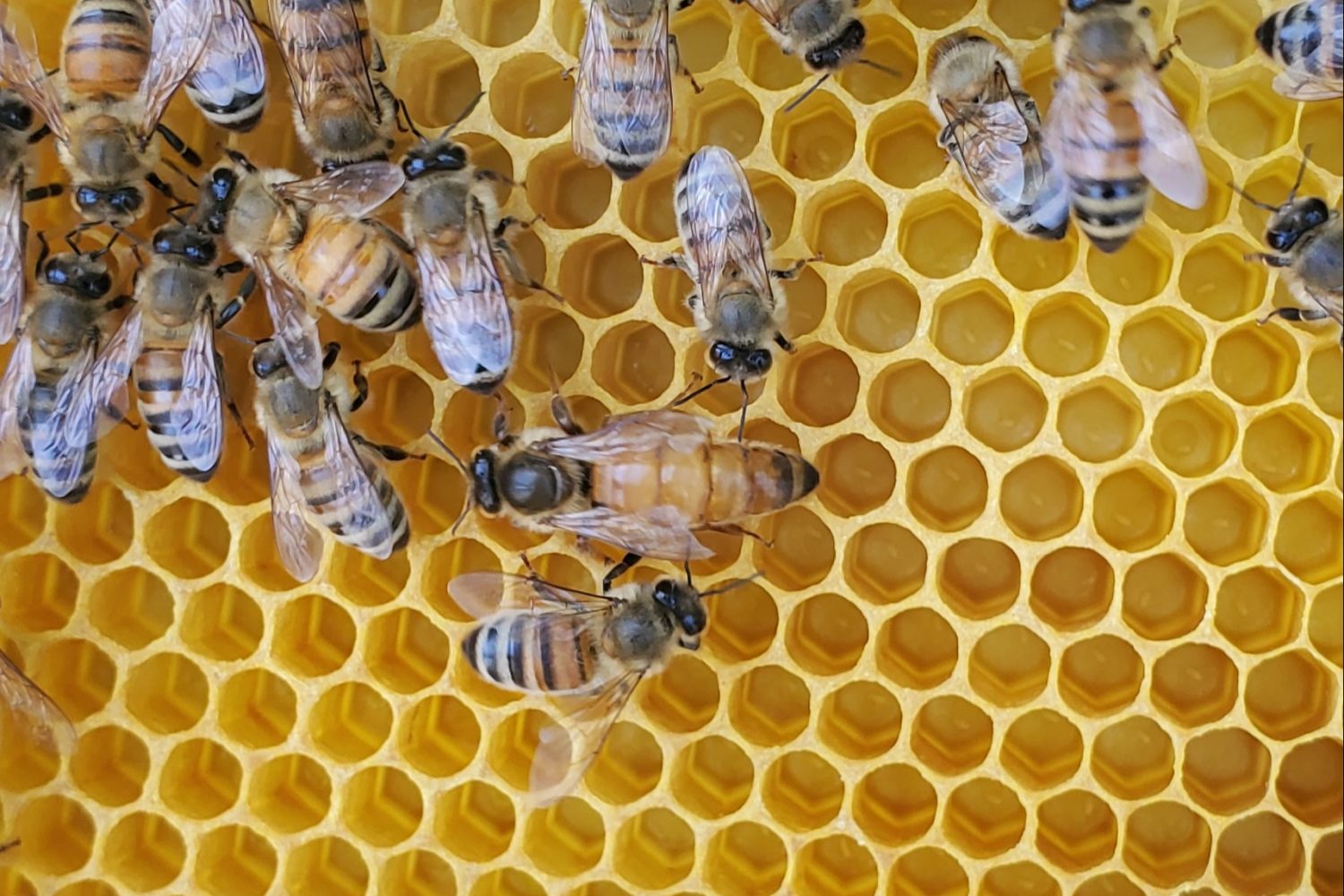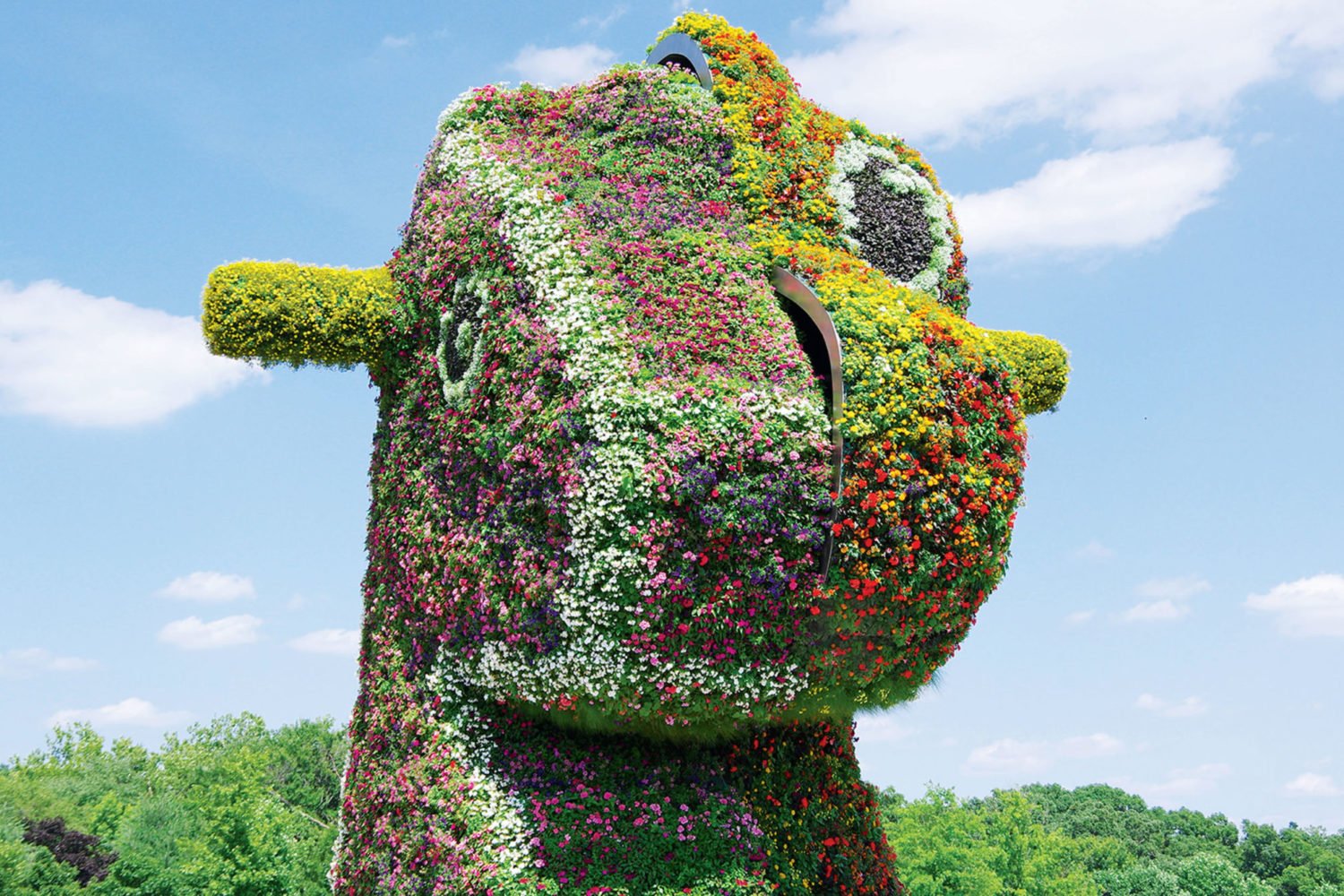You’ll soon be able to buy honey at, of all places, DC’s Congressional Cemetery—honey that was harvested from apiaries nestled into the hillside among the headstones and above the crypts on the cemetery grounds.
Jan Day is the president of the DC Beekeepers Alliance. She’s been keeping bees in DC for nine years—including apiaries of her own on her second-story balcony in Capitol Hill, appropriately yielding the name of her blog “Second Story Honey.” The alliance has had bees at Congressional for 12 years.
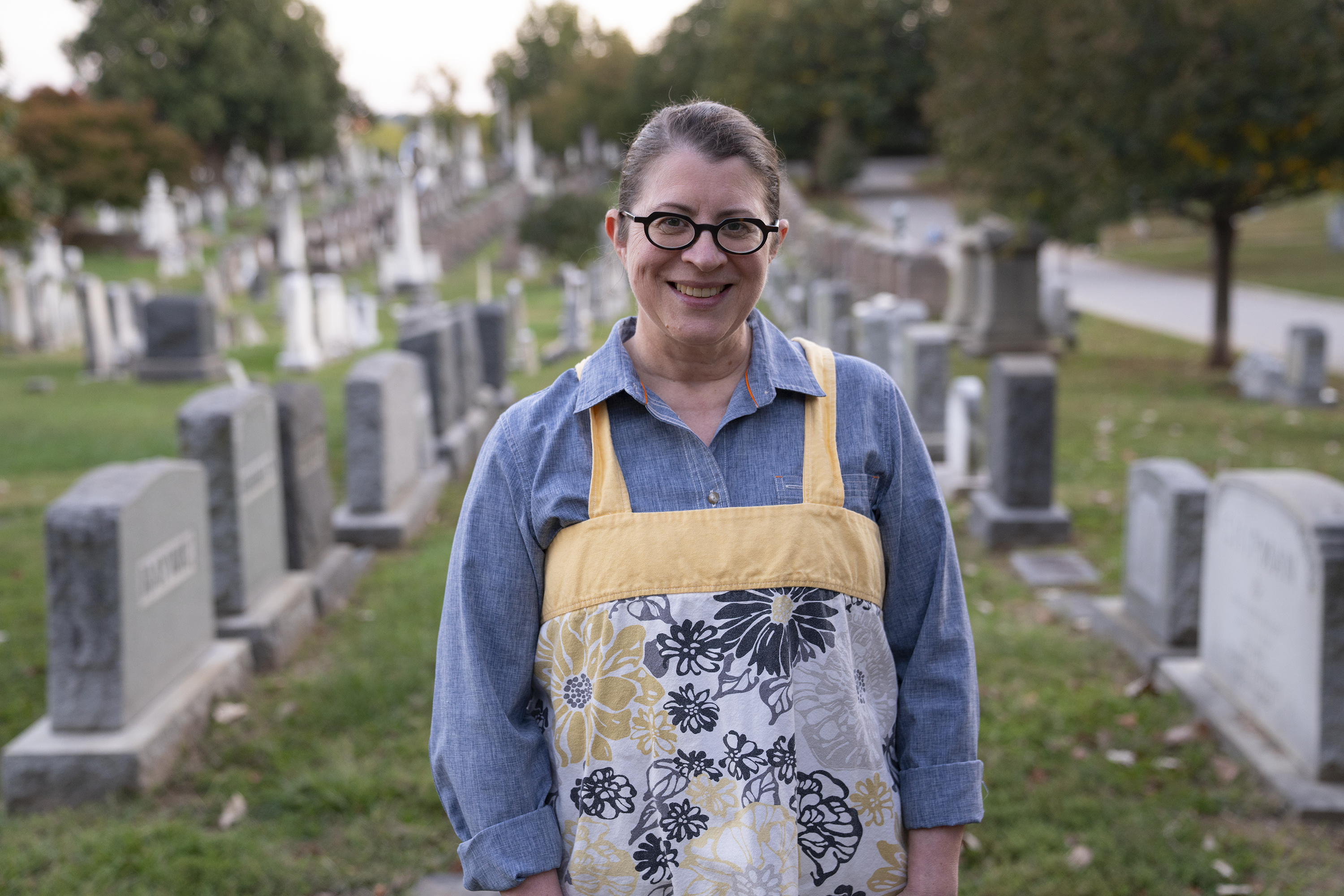
Although it may seem spooky, Day says the cemetery is actually a great place to host bees. “One, it is filled with mature trees, and mature trees bloom and they actually offer a great forage source of nectar and pollen for our bees,” Day says. “Secondly, the cemetery is right along the banks of the Anacostia River, where there’s a variety of plants that are blooming from very early in the spring, even starting in February, through the frost in October, November.”
The hives are stacked behind a fence–away from visitors, which include dogs and dog walkers–and above the crypts built into the hillside, allowing the bees to buzz freely, high above human interference.
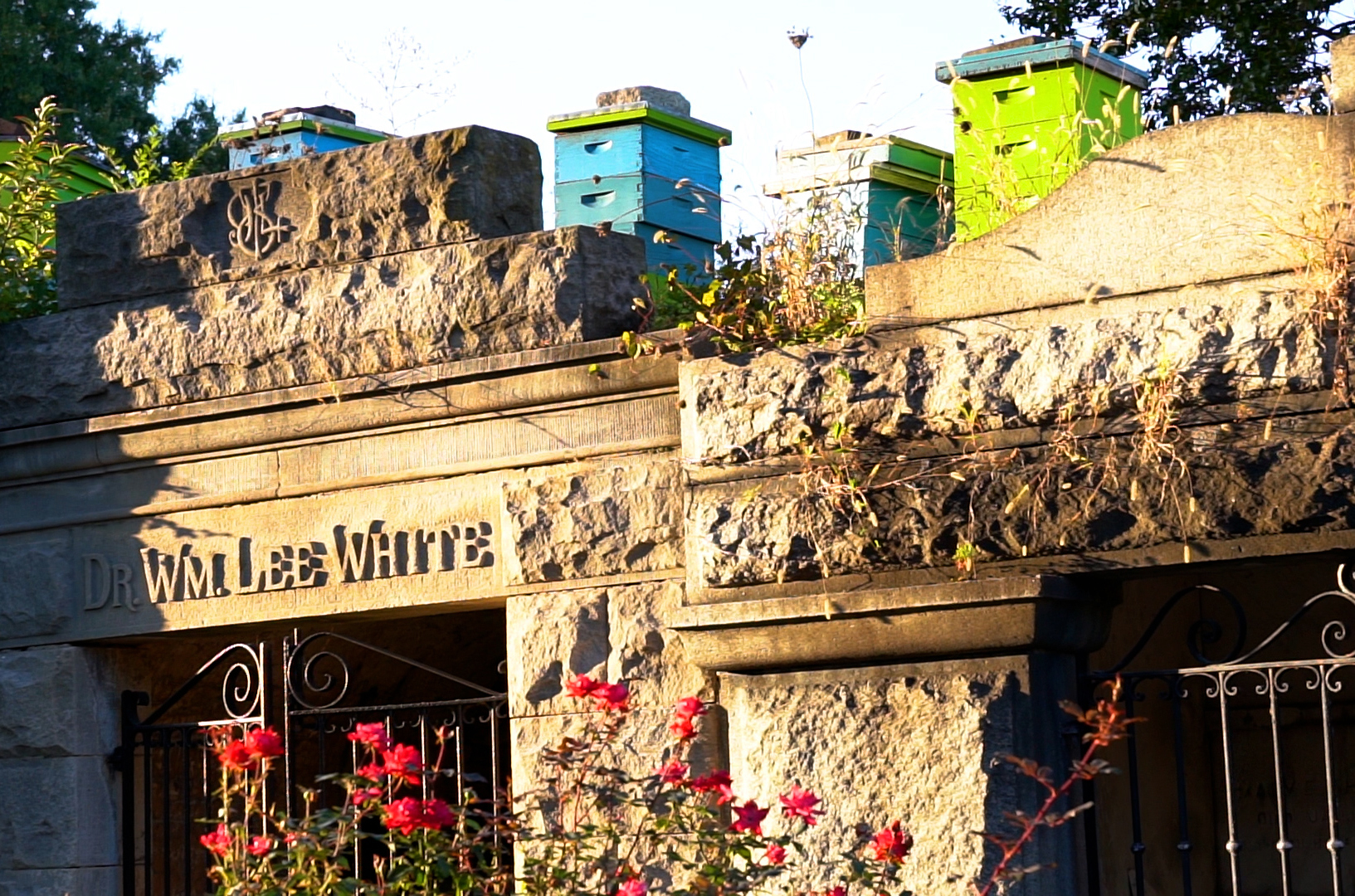
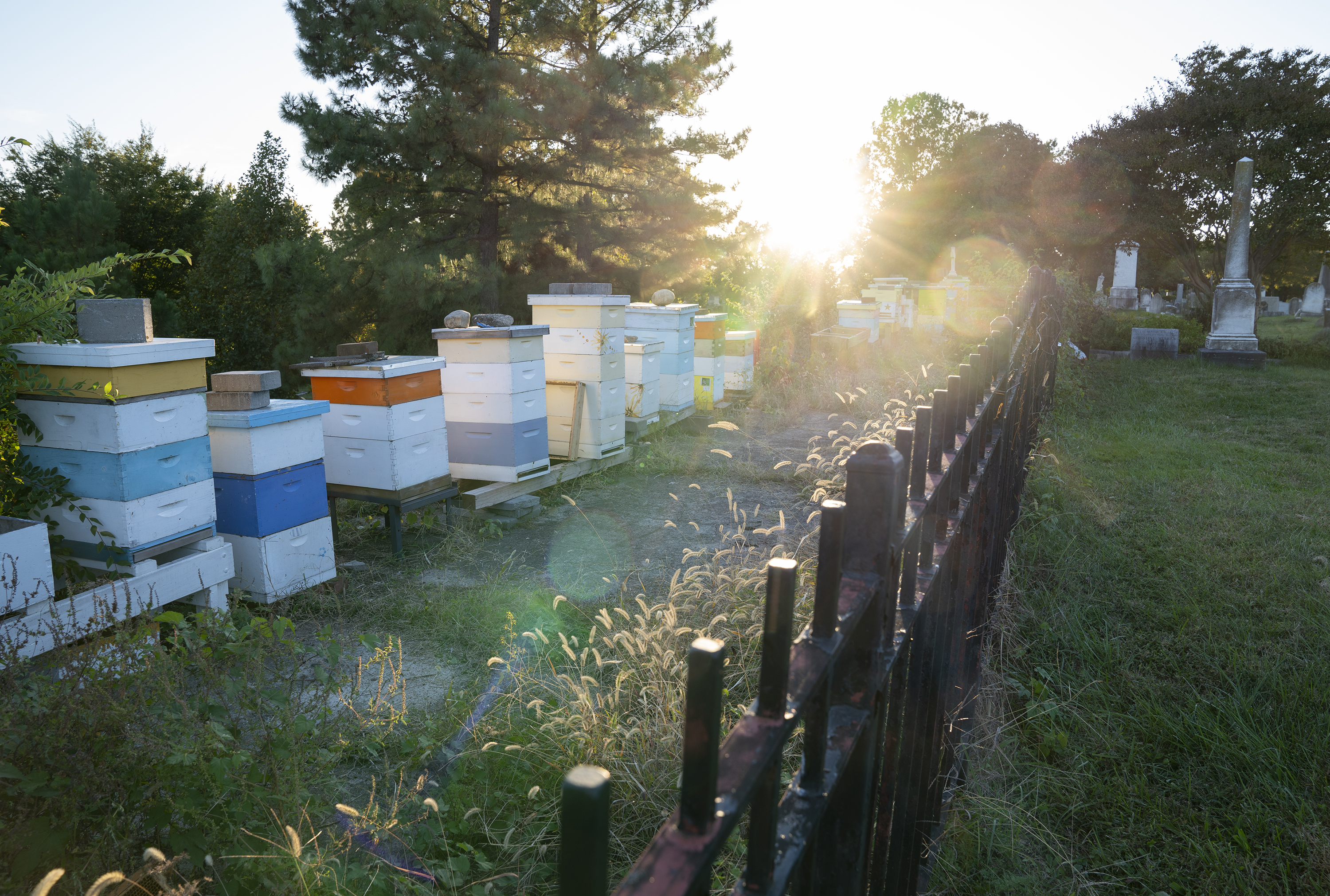
Day says the average healthy hive in DC will produce between 30 and 50 pounds of excess honey per year that the beekeeper can take, but they make sure to leave between 60 and 80 pounds of honey on each hive so that bees have sufficient food for the winter.
“Lots of people want to know, ‘How can we help the bees? How can we save the bees?’ Probably the number one thing that you can do is plant pollinator friendly plants in your garden. That will help not just honeybees, but some of the 400 native bees, wasps, pollinators, and butterflies that frequent our gardens here in the city,” Day says.
Another way is to volunteer. The DC beekeepers alliance is made up of about 150 beekeepers across the city and nearby jurisdictions from all walks of life–volunteering as beekeepers for hobby. At Congressional, as many as ten beekeepers are on site at any given time, tending to the 25 hives, each hive containing about 60,000 bees at its peak.
“One of the ways we thank Congressional Cemetery for allowing us to keep bees here is by paying what we call our yard rent. And this is something that beekeepers around the world do. We pay our yard rent in the honey harvest experience that we’re going to have tonight and by donating the honey to the cemetery as their fundraiser.”
Visitors to the cemetery’s honey harvest last Tuesday got to tour the bee yards, try their hands at extracting honey from the hive, and learn how keepers bottle it into jars before sending it out into the community. Day says Beekeepers in DC generally harvest honey once a year, and the cemetery harvests in the fall, when it’s then sold as a fundraiser for the non-profit cemetery.
In total, 150 pounds of honey are bottled into jars for the public to buy.
Cemetery-grown honey, which Day claims is some of the best in the city, will go on sale starting in November, with a six-ounce jar costing $10. The cemetery will announce when sales open on its Facebook and Instagram pages.
“You’ve got to act fast,” Day says. “It goes like hotcakes.”

